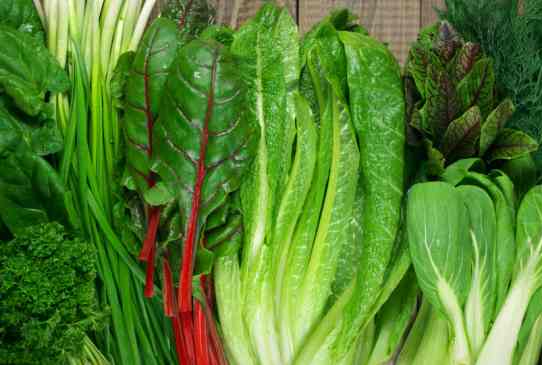
Cardiovascular ailments, that are a bunch of issues that contain the guts or blood vessels, are the primary explanation for demise globally, taking round 17.9 million lives annually, based on the World Well being Organisation. Consuming a nutritious diet, getting common bodily exercise, staying at a wholesome weight, and limiting or avoiding tobacco merchandise and alcohol are the keys to prevention of coronary heart ailments. Additionally, be sure you eat one cup of nitrate-rich greens, akin to leafy greens and beetroot, every day. This may considerably cut back your danger of coronary heart illness, advised a brand new research from New Edith Cowan College (ECU), Australia.
The analysis staff led by Dr Catherine Bondonno from ECU’s Institute for Vitamin Analysis discovered that individuals who commonly ate larger portions of nitrate-rich greens had decrease blood stress and had been additionally much less more likely to be identified with coronary heart illness later in life. For the research, they examined information from over 50,000 folks residing in Denmark participating within the Danish Weight loss program, Most cancers, and Well being Examine over a 23-year interval. The members who consumed essentially the most nitrate-rich greens had a few 2.5 mmHg decrease systolic blood stress and between 12 to 26 per cent decrease danger of coronary heart illness, they mentioned.
Weight loss program performs key position in prevention of coronary heart illness
Dr Bondonno famous that following a nutritious diet must be a precedence to forestall coronary heart illness. The research outcomes have proven that by merely consuming one cup of uncooked (or half a cup of cooked) nitrate-rich greens every day, folks might be able to considerably cut back their danger of heart problems, the skilled mentioned.
Based on the researchers, the best discount in danger was seen for peripheral artery illness (26 per cent), a kind of coronary heart illness characterised by the narrowing of blood vessels of the legs. In addition they discovered that individuals who consumed nitrate-rich greens commonly had a decrease danger of coronary heart assaults, strokes and coronary heart failure. Nonetheless, consuming a couple of cup of those greens a day did not appear to provide any extra advantages, Dr Bondonno said.
No have to take dietary supplements to spice up nitrate ranges
Nitrates are vasodilators that assist widen (dilate) the blood vessels, which in flip enhance blood circulate. This enables extra oxygen-rich blood to achieve the guts muscle. By stress-free the veins, nitrates additionally assist ease the workload on the guts. Our physique makes round 62 milligrams (mg) of nitrites a day, however the compounds are additionally extensively present in water, soil, air, and vegetation. Meals, particularly inexperienced, leafy greens, is the primary supply of dietary nitrate. Must you be taking dietary supplements to spice up your nitrate ranges? There isn’t any want of taking complement, mentioned Dr Bondonno. One cup of leafy inexperienced greens every day is sufficient to reap the advantages for coronary heart illness, and the research didn’t see additional advantages in individuals who ate larger ranges of nitrate-rich greens, the skilled added.
Learn how to add uncooked leafy greens in your weight loss plan
Based on Dr Bondonno, you possibly can embody a cup of spinach in a banana or berry smoothie to get the correct quantity of nitrate for wholesome coronary heart. However do not juice the leafy greens, as a result of juicing greens removes the pulp and fibre, Dr Bondonno mentioned.
The ECU research provides to rising proof linking greens, particularly leafy greens, with improved cardiovascular well being and muscle power.
With inputs from companies






















